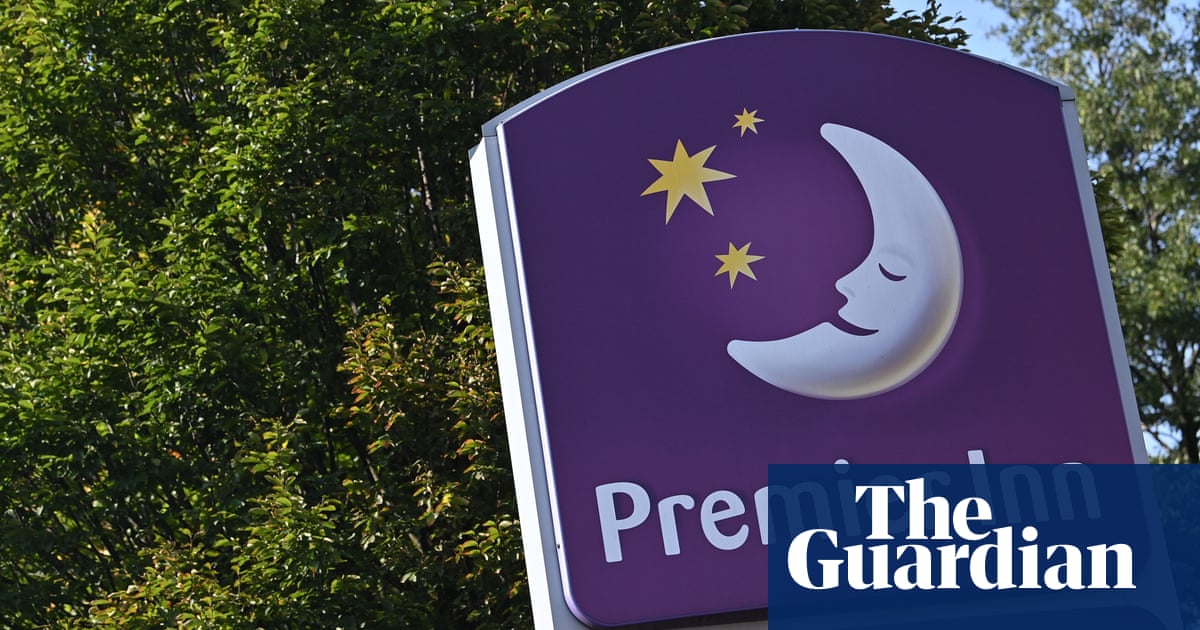Profits at the Premier Inn ownerWhitbreadhave fallen after it was hit by higher costs and a drop in UK bookings, but shares rose on the promise of a share buyback and more hotel openings.
Britain’s largest hotel group, which owns 852 hotels in the UK and 61 inGermany, reported a 14% fall in adjusted pre-tax profit to £483m for the year to 27 February. Revenues dipped by 1% to £2.9bn, as revenue per available room in the UK was down by 2%.
Whitbread shares rose by 4% after it brought forward plans to return £2bn to shareholders via share buybacks and dividends by 2030, with a £250m buyback coming later this year.
Both business and leisure bookings weakened in the UK, especially in London. Bookings made well in advance and during peak times such as the summer remained robust, while people made fewer short-term bookings than in the previous year.
Premier Inn does not usually attract many US travellers. Dominic Paul, the Whitbread chief executive, said there could be an upside for Premier Inn, with European tourists choosing to holiday in the UK rather than the US because of Donald Trump’s hostile immigration policy.
Weaker demand in the UK was partly offset by stronger growth in Germany, where a fifth of bookings are from people going to sports events or concerts, compared with less than 5% in the UK.
“This will be a breakthrough year in Germany and we are set to deliver our first ever adjusted profit in 2026,” Paul said.
Whitbread said it was outperforming the wider UK market and pushing ahead with hotel openings. Along with the rest of the branded budget sector, Premier Inn is expected to grow over the next few years, while independent hotels are predicted to decline further, meaning the overall UK hotel market will not return to 2019 room levels until at least 2027.
Faced with rising staff costs fromnational insuranceand the minimum wage hikes, thecompany has increased its cost savings targetfrom £50m to £60m this year, after cutting £75m in costs last year. It is turning 238 underperforming branded restaurants into hotel rooms.
Derren Nathan, head of equity research at Hargreaves Lansdown, said: “It’s tough out there for hoteliers but the UK’s largest hotel brand is continuing to outperform the competition. The group’s sticking to its room opening plan but if the market remains weak, the bottom line will remain under pressure this year. There’s little room to push up room rates, and while Whitbread’s cost management is impressive, it’s still expecting around 2% inflation on UK costs.
Sign up toBusiness Today
Get set for the working day – we'll point you to all the business news and analysis you need every morning
after newsletter promotion
“The rollout of the much smaller German division continues apace, he added, “but that’s not going to move the dial.
“With significant investment plans on the horizon, management will be hoping the demand picture doesn’t deteriorate. That will be down to the health of the global economy, which remains firmly under the cloud of tariff uncertainty.”
